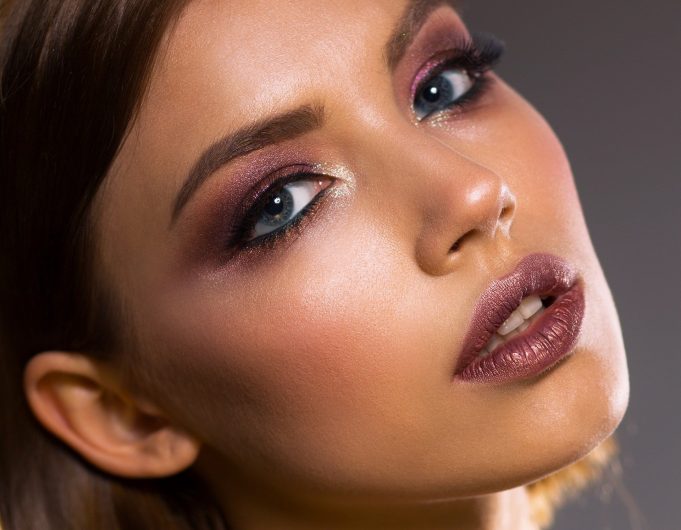Beauty is a concept that changes dramatically through time and between cultures. In Ancient Egypt, the ideal woman was slim with small shoulders whereas in Victorian England, it was a full and curvaceous figure with a cinched waist. In the roaring twenties, women aspired to be flat chested and boyish, whereas the golden age of Hollywood between the 30s and 50s idealised curves and an hourglass figure.
The idea of beauty is always shifting and is often in the eye of the beholder, which can be influenced by society and the zeitgeist of the times. Today, it’s arguable that beauty is more inclusive than ever. Prestige fashion magazine Vogue has been praised for their increasingly inclusive magazines thanks to their newest editor in chief Edward Enninful, featuring covers of individuals from different ethnicities, sexualities, genders, and ages. Often after pressure from the public, less and less companies are enforcing unrealistic standards of beauty and are instead starting to focus more on a diverse selection of people. What we consider as beautiful is a reflection of our values, and a world more connected than ever thanks to social media and technology is changing up ideals of beauty constantly.
Whether we’re following an intensive ten step Korean skincare routine or religiously applying self-tan drops on Thursday nights ready to be bronzed for a weekend of partying, we all strive for our own goals of beauty. Here, we discover what other people consider beautiful.
The findings
We carried out research to find out what male and female respondents thought beauty looks like – respondents were asked to give one word that came to mind summarising what beauty looked like to them. We categorised some words together such as smiling and happiness, perfection and flawless, and gorgeous and attractive due to similarities.
The most popular word was natural at 15.5% followed by confidence at 13.8%, happiness at 12.1, and pretty, kindness, and perfection at 5.2%. Interestingly, words focused less about aesthetic and appearance and more on internal characteristics like confidence, kindness, acceptance, boldness, spirit, positivity, peace, empowerment, self-love, fascinating, creativity, unique, elegant, and intelligent.
It’s the inside that counts
In a world dominated by social media and Instagram, where we are constantly exposed to marketing on idealised beauty standards from our social media feeds to marketing advertisements, it can take all take a toll on our self-esteem. We spend a lot of time on our phones, where beauty standards are in our face day in and day out. And if we’re not on our phones, we’re out in the world being bombarded by marketing everywhere. Adverts often tell us how we should feel, what we should look like, what is attractive and what isn’t. So, it’s encouraging to discover that beauty isn’t purely thought of as how people look in our survey, but what is on the inside.
Although there is nothing wrong with taking pride in our appearance and conveying a message to the world about who we are with our makeup and outfits, beauty isn’t skin deep.
The shift in beauty trends
Last year has been a tough one. And the start to the new year hasn’t been great either. During the pandemic, conversations around self-love emerged. As we battled for things to do to fill our time and avoid scrutinising every aspect of our life and appearance out of pure boredom, social media was filled with tips on how to love and take care of yourself in such a strange time. These tips included things like painting your nails, meditating, putting on a face mask, reading a new book, applying haircare and skincare, lathering up in body lotion, listening to some new music, finding a new film – anything that made you feel good and appreciate time with yourself.
Interestingly, natural was the most popular word cited by respondents that reflected beauty. This echoes a theme that has been noticed over the last year – we’re shifting towards a more natural appearance with less makeup and more skincare – self-love. It is possible that the COVID-19 pandemic has accelerated how quickly we’ve adopted this change with us needing fewer reasons to makeup when we’re either wearing facemasks or are isolating indoors.
Stylist asked several people love lessons they learnt during lockdown. Interestingly, one woman, Lauren, commented about self-love: “By loving myself, I’ve been in a better position to show love to others. As someone who has struggled with their mental health in the past, I know how important self-love can be when it comes to our wellbeing. But no year has shown me quite how valuable our relationship with ourselves can be quite like 2020.
“Whether I’m treating myself to my favourite food, forcing myself to go for a walk (I always feel better afterwards) or doing something I enjoy, self-love has not only helped me to survive a particularly challenging year, but it has also put me in a better position to support those around me.
“This is because, by giving myself permission to recharge when I needed to and showing myself compassion when things weren’t going quite right, I’ve felt more emotionally secure in myself and equipped to share love with my friends and family. It’s a win-win situation!”
While many of us may strive for perfection on the inside, maybe we should be nurturing ourselves from the inside. Apply your fake tan, paint your nails, perfect your makeup technique, but also love yourself and take time to look after number one.
Sources
| Word | Percent |
| Natural | 15.5 |
| Confidence | 13.8 |
| Smiling/happiness | 12.1 |
| Pretty | 5.2 |
| Kindness | 5.2 |
| Perfection/flawless | 5.2 |
| Inside | 3.4 |
| Gorgeous/attractive | 3.4 |
| Acceptance | 1.7 |
| Boldness | 1.7 |
| Thin | 1.7 |
| Simple | 1.7 |
| Spirit | 1.7 |
| Myself | 1.7 |
| Positivity | 1.7 |
| Peace | 1.7 |
| Empowerment | 1.7 |
| Stand out | 1.7 |
| Structure | 1.7 |
| Self-love | 1.7 |
| Fascinating | 1.7 |
| Eyebrows | 1.7 |
| Purity | 1.7 |
| Effortless | 1.7 |
| Creativity | 1.7 |
| Unique | 1.7 |
| Elegant | 1.7 |
| Intelligent | 1.7 |
| Easy going | 1.7 |
https://www.scienceofpeople.com/beauty-standards/
https://www.stylist.co.uk/long-reads/lockdown-love-lessons/468494










